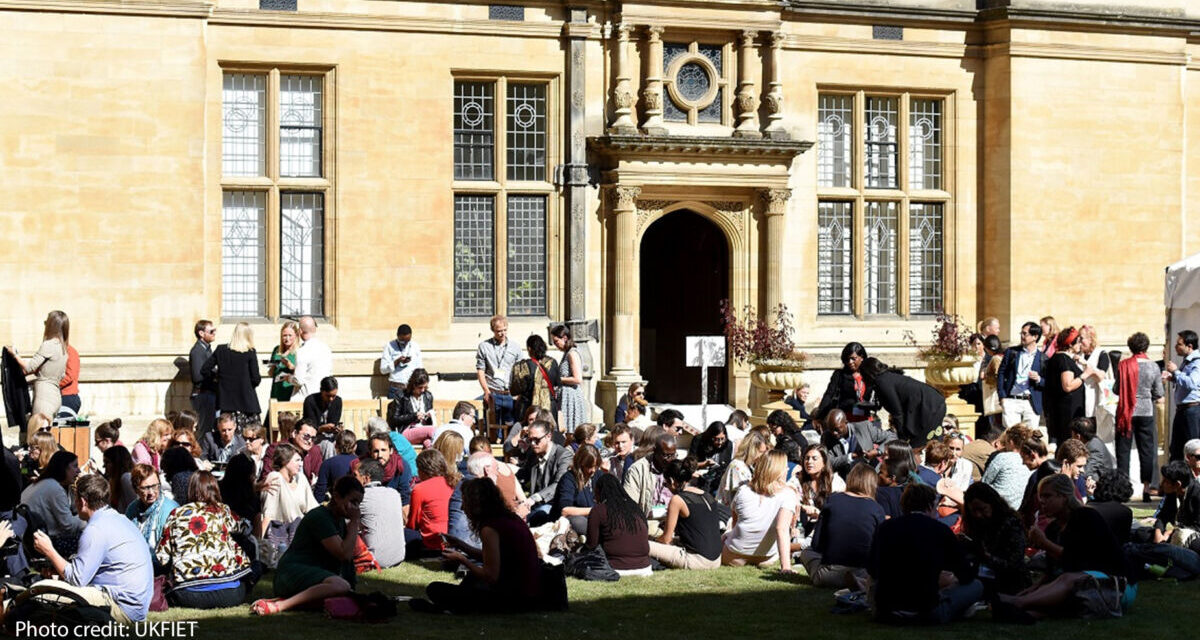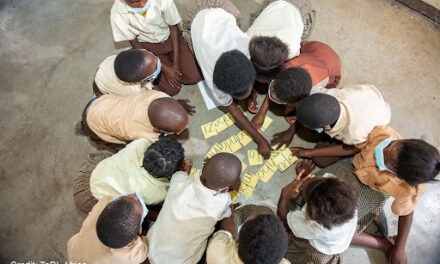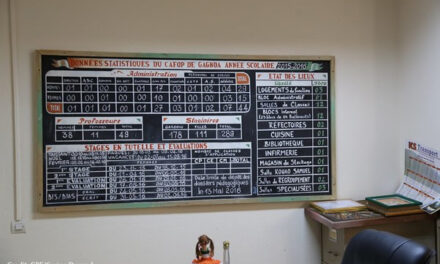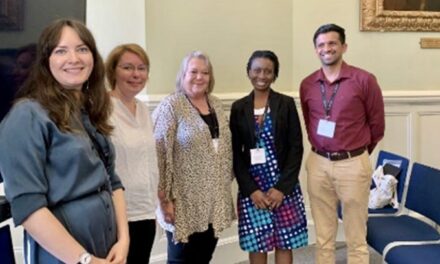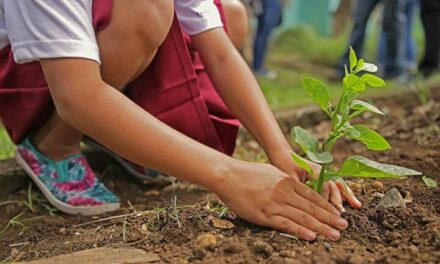This blogpost is written by Yulia Nesterova, Conference Chair, and Amy Parker and Aliya Khalid, Deputy Chairs. Here, we reflect on the upcoming September 2023 UKFIET conference theme and our hopes for the discussions and outcomes of the event.
Inequalities and injustices, environmental degradation and climate change, violence and deadly conflict, polarisation of society and hatred of ‘the Other’ are the realities we are confronted with these days. Education, learning and training play a critical role in addressing these issues and their root causes, supporting recovery, and preventing relapse and further deterioration. In short, education can be a powerful tool in achieving social and environmental justice.
UKFIET conference theme
When choosing the theme for the UKFIET 2023 conference, social and environmental justice were the key words for us, as they encompass diverse elements and approaches to ensure justice for all living and non-living beings – distributive, relational, epistemic, historical, transitional, climate and environmental. We had a discussion of whether to focus on climate justice vs environmental justice and went for the latter – to ensure that along with climate change, the conference highlights the importance of the protection of the natural environment and wildlife.
The other three key words we chose are diversity, sustainability and responsibility, with diversity threading through all other aspects. Why are they important?
By highlighting diversity, we want to spotlight the need for the diversity of views, perspectives, approaches, frameworks and groups of people to be able to address the multi-faceted and complex issues the world, and education systems, are facing these days.
At the same time, diversity holds a much deeper and nuanced meaning for us. In this spirit we did not expect scholarship to fit our standards of ‘diversity’ but instead we challenged ourselves to look within ourselves and the academe to challenge the ways we see scholarship. As a team of organisers, we reflected on deconstructing our own ways of thinking to allow ourselves to think of ‘knowledge’ and ‘academic standards’ in decolonial ways. A key exercise for us was to be reflexive about what constitutes ‘standard’ in the production of knowledge. The meaning of diversity in knowledge started to grow beyond physical contexts of origination into concerns of scholarly thought and the various ways in which it is communicated across the world. Our aim was to think outside of the Global North box, and imagine the modes of knowledge communication in diverse ways. We hope that this approach will result in diverse perspectives to emerge strongly at the conference.
Sustainability for us means a number of critical issues: sustainable financing of programmes and projects and sustainable multi-stakeholder and multi-level partnerships – that is to say, lasting, uninterrupted, just, and committed financing and partnerships.
By using the word responsibility, we wanted to emphasise the important role all of us play in this journey. That is, that each actor and stakeholder, including most vulnerable individuals and communities, should be supported and empowered through education and learning to take charge of their own lives and their communities and societies to lead them towards peace, justice, equity, and sustainability.
Re-thinking the conference model
This year’s UKFIET Conference will create a space for academics, practitioners, policymakers, and donors to discuss the state of education in relation to these issues and how education can support communities and societies in addressing these concerns. The delegates will share evidence and good practice, learn from each other, and have a constructive and critical dialogue about what it means to transform education to achieve social and environmental justice for all.
We hope that this conference will help us move beyond the ‘business as usual’ model to re-think, innovate and transform our research, practice and decision-making to support sustainability, justice and equity.
We were mindful of the concerns that delegates have about a conference on environmental and social justice being hosted in the UK. Due to the cost of travel and difficulty and cost of getting UK visas, it is inaccessible to the majority of the world and this can lead to exclusion. We were also mindful of the difficulties that delegates with caring responsibilities and health concerns may have with travelling as well as the concerns of many that travel contributes to climate change. In our effort to respond to this, we made a decision to offer an online-only conference day, which is more cost-effective and accessible to a wider audience (7 September 2023). Following that, our three in-person days (12-14 September 2023) have many hybrid options available every day to ensure our colleagues who won’t travel to Oxford can present and join in-person sessions virtually. UKFIET offered bursaries to delegates who experience hardship, and BAICE offered additional grants.
Conference programme
We have a very rich programme for both online and hybrid/in-person days, under six sub-themes of:
- Conflict, crisis, climate and migration;
- Decolonisation, politics, knowledges and power;
- Planning, finance, technology and data;
- Rights, equity and inclusion;
- Education systems including workforce and curricula;
- Holistic learning processes and outcomes.
The programme includes posters, quick fire presentations, papers and symposia from diverse contexts, presented by scholars, practitioners, and policymakers from across career levels.
Exciting keynote speakers
We are very excited about the online day that we will open with a keynote by a world-renowned environmental activist Dr Vandana Shiva. In-person days will see three highly engaging plenary sessions that will be accessible to online participants: Dr Maria Balarin will speak at the opening plenary and Prof. Nidhi Singal will give the BAICE Presidential Address. We can’t wait to learn from their expertise and experience.
We will conclude the conference with a really exciting closing plenary panel that will consist of a refugee teacher Byaruhanga Nestori (Solidarity Initiative for Refugees), youth activists Michelle Varaidzo Tarumbidzwa Chikurunhe and Sarah Amu (both from the Global Youth Panel for Education in Emergencies), and Sally Gear (Global Partnership for Education). This panel will be moderated by Prof. Leon Tikly (University of Bristol). It will offer an opportunity to dialogue with such diverse individuals and change-makers and to learn from them. Our youth and teacher speakers – Michelle, Nestori, and Sarah – will be with us for the whole duration of the conference and we encourage you to engage with them and to warmly welcome them to their very first UKFIET conference.
We have a Meet the Editors session to give an opportunity to ask questions and to hear from editors in diverse journals. This will be of interest to colleagues interested in publishing in policy and practice relevant academic outlets. We have an exciting line-up of editors for this session, including Michele Schweisfurth (Comparative Education), Moira Faul (NORRAG), Ruth Naylor (INEE Journal on Education in Emergencies), Su Corcoran (EENET), Uma Pradhan (Compare) and Stephen P Heyneman (International Journal of Educational Development). Stephen, Editor-in-Chief of IJED, will hold a separate session in addition to this to speak specifically about publishing in this journal.
Sharing your ideas
Beyond attending sessions, there will be opportunities for delegates to actively engage in the conference themes via key takeaway boards. The boards for each sub-theme will be created online and available in-person – we encourage you to contribute to a relevant board with insights that you collected after attending different sessions. We are also delighted to share that we will have a selfie-booth where you can use one of the prompts (e.g. What does environmental justice mean to you?), complete it with your thoughts, and take a photo. You can then post it on social media to share your stance and call other people to action. We hope to create a community of action around the conference that will shout loud and clear about the change we hope to see.
We are very happy we had this opportunity to initiate this space for our colleagues. We are looking forward to seeing you in September. We hope you will enjoy the conference with us.

